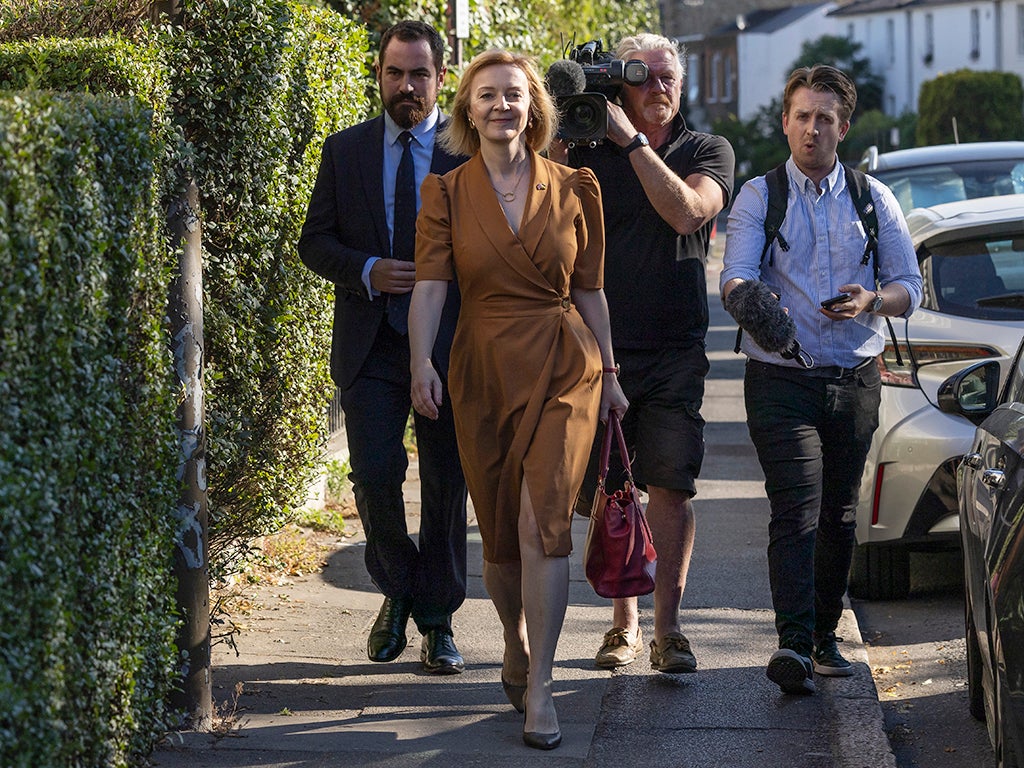
“There’s a reason Keir Starmer is attacking me at [Prime Minister’s Questions],” tweeted Rishi Sunak. “It’s because he knows we’re the only team that can beat Labour.”
The claim is made by other candidates for the Conservative leadership as well. In an attempt to justify it Sunak, the former chancellor, cites some polling showing him one percentage point ahead of the Labour leader with his rival candidates far, far behind – probably even further behind than Boris Johnson at present.
There’s two problems with this poll. The first is that it’s hypothetical. It asks voters to imagine a potential future. Trying to gauge how people would feel if so-and-so was Tory leader rather than Johnson is not easy. Most voters aren’t focused on alternative leaders and so polls like these don’t have form for accuracy. (I should know – I commissioned my fair share during the Brexit wars.). And they doubly don’t when voters can hardly recognise the names of the candidates.
Sunak, in this poll, is the only candidate with substantial name recognition, so it’s only natural that he would poll better than his rivals. A recent Savanta ComRes poll affirms as much. While Sunak is recognised by 66 per cent of the public, Liz Truss is recognised by 33 per cent and Penny Mordaunt a measly 11 per cent.
Any claim made by Camp Sunak about his electability is predicated on the key caveat that he is the only known face among a sea of unknowns. So it’s a misleading claim, and there are plenty of reasons to think Sunak would face fatal difficulties as leader.
So who should Labour really fear the most? It’s a hard question to answer. At the moment there’s no reliable data to support this candidate or that because none of them have substantial name recognition. When contemplating the future of the Tory party, however, there are two things to consider. The first is that voters are looking for a post-partygate, post-Johnson reset. The second is that, though they hanker for a post-Johnson politics, they are not necessarily looking for an abandonment of Johnsonism. Commitments to levelling up and action on the cost of living are what voters want most at the moment (the former particularly in marginal seats).
Sunak has already stumbled before. He went from the “Dishy Rishi” of the Covid years to the man who disappointed all with his last Spring Statement. Truss, the Foreign Secretary, is quite clearly the continuity Johnson candidate and this may create a “more of the same” vibe that could hinder her capacity to reset voters’ perceptions of the Tories.
Among those with an opinion, YouGov polling in April showed that Truss had a net favourability rating of minus 29 percentage points (18 per cent approval, 47 per cent disapproval). There’s no doubt that, in common with Sunak, she would be at risk of starting on the back foot, whatever honeymoon she enjoys.
Mordaunt’s relative obscurity may help her here. She’s not well-known and, right now, that’s no bad thing. She would represent far more of a reset than Sunak and Truss, having not served in Johnson’s cabinet, and would probably enjoy a modest surge in support.
Mordaunt has obvious charisma and her performances in the Commons are commendable, if not outstanding. There is, however, something of Theresa May about her. She has yet to face significant scrutiny and on the rare occasions she has been challenged, such as when she wrongly claimed during the Brexit campaign that the UK could not stop Turkey joining the EU, she hasn’t held up well. Like May, she risks disappointing under pressure, most of all during the heat of a general election.
Mordaunt’s emergence as a serious contender for the leadership makes her resemble Johnson in one key way: she is now the insurgent. Because of her obscurity she is the candidate who voters will project their hopes onto. She is who Labour should fear the most.
[See also: As liz Truss surges, who is Labour’s dream opponent?]


